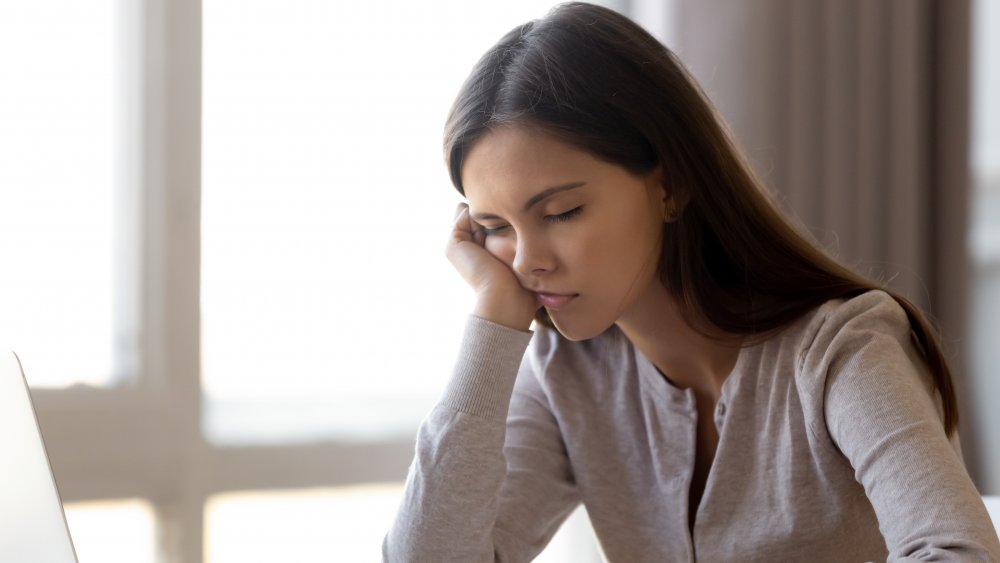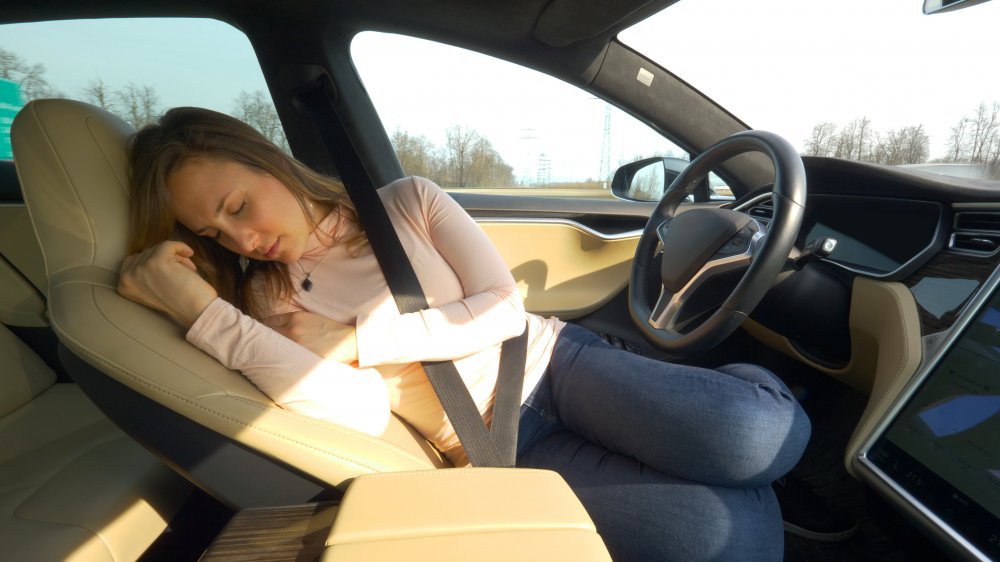The Truth About Sleep Drunkenness
Sleep drunkenness is defined by the Medical Dictionary as an extended transition between sleep and wakefulness. During that time, a person is only partially alert, and they're also disoriented, drowsy, and have poor coordination. In more extreme cases, a person who is experiencing sleep drunkenness might even become excited or violent. If this all sounds familiar, that's because it very well could be. Researchers at Stanford University say sleep drunkenness, also known as confusional arousal, happens to 1 in 7 adults (or about 36 million Americans). More than a third of the people in a Stanford study conducted on sleep drunkenness also say they experience hallucinations and sleepwalking.
The Cleveland Clinic's Jessica Vensel-Rundo, who was not part of the study, said chronic sleep drunkenness may be a symptom of untreated sleep disorders, which can include sleep apnea, restless leg syndrome, or insomnia. Of those who took part in the Stanford survey who said they experienced sleep drunkenness, 84 percent also said they had other sleep disorders such as insomnia, mental health disorders such as anxiety or post-traumatic stress disorder (PTSD), or were on psychotropic drugs such as antidepressants. Sleep drunkenness can also be related to the amount of sleep someone is getting: 20 percent admitted getting fewer than six hours of sleep every night, while 15 percent say they are getting at least nine hours of sleep.
Sleep drunkenness takes a while to shake off
Sleep expert Maurice Ohayon, MD, DSc, Ph.D., who participated in the Stanford study on sleep habits, says he is surprised both by the extent of sleep drunkenness and the length of time a person might stay sleep drunk. "When you ask people, 60 percent said it lasted more than five minutes," he said. "And one third said it was 15 minutes or more. The concern is that people in a job of security, such as engineer[s], may misjudge the situation because their memory is impaired. Their judgment is not taking into account the environment around them, so they will probably have a bad response."
He cautions that active airline pilots who nap during a break might not be efficient for up to 10 minutes after being awakened, and that they should take their time before resuming control of their aircraft.
This advice can come in handy even if you don't have a high-stakes job. Take your time before driving a car first thing in the morning, or doing important work after an afternoon nap — it could make a huge difference.

